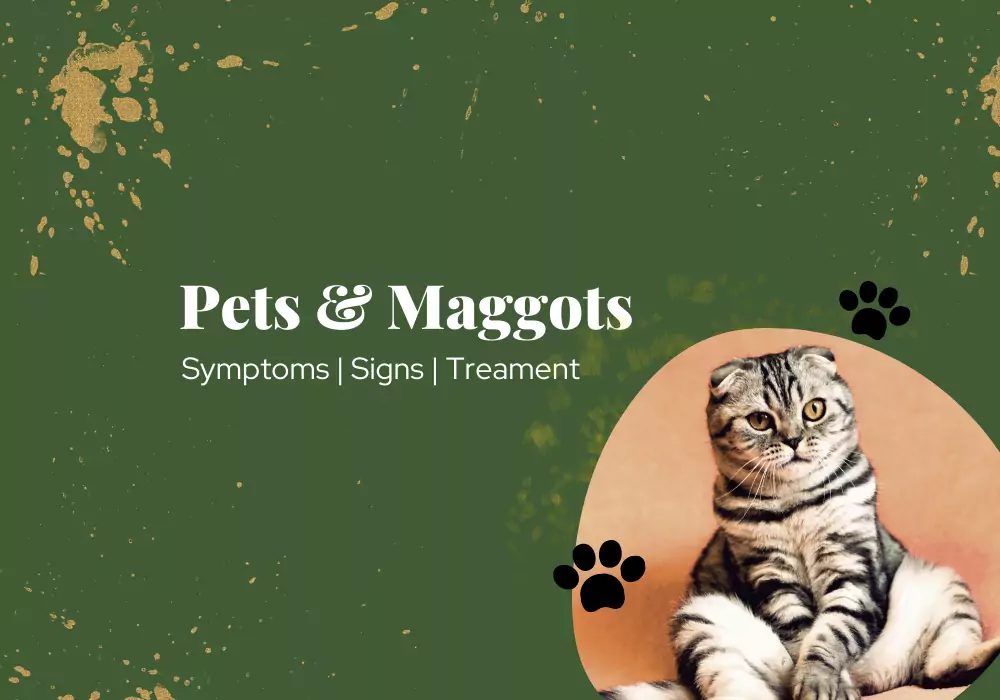Detecting Maggots in Pets: Signs, Symptoms, and What You Can Do
Maggots, the larval stage of flies, can infest pet’s wounds or moist skin areas, leading to severe discomfort and health issues. Detecting maggots early is crucial for your pet’s well-being. This guide will help you identify the signs and symptoms of maggot infestations and provide actionable steps to address the problem.
1. Signs of Maggots in Pets
Detecting maggots early can prevent significant health complications. Look for the following signs:
- Visible Maggots: Small, white, worm-like creatures on your pet’s skin, especially in wounds or moist areas.
- Foul Odor: A strong, unpleasant smell emanating from your pet, indicating tissue decay.
- Unusual Behavior: Your pet may excessively scratch, lick, or bite at a specific area, indicating discomfort.
- Wound Deterioration: Wounds that seem to worsen despite treatment or new wounds that appear without a clear cause.
2. Symptoms of Maggots in Pets
Along with visible signs, maggot infestations can cause various symptoms, including:
- Lethargy: Your pet may become unusually tired or lack energy.
- Loss of Appetite: A sudden decrease in eating or drinking.
- Fever: Elevated body temperature indicating an infection.
- Swelling and Redness: Inflamed and swollen skin around the infested area.
- Pain: Your pet may yelp or show signs of pain when the affected area is touched.
3. What You Can Do
If you suspect a maggot infestation in your pet, take immediate action to mitigate the problem:
- Inspect and Clean:
- Gently part the fur and inspect the affected area.
- Clean the wound with saline solution or mild antiseptic to flush out visible maggots.
- Seek Veterinary Care:
- Contact your veterinarian immediately for professional treatment.
- Follow the vet’s instructions for wound care and medication.
- Remove Maggots Safely:
- If instructed by your vet, use tweezers to remove maggots carefully.
- Ensure all maggots are removed to prevent reinfestation.
- Apply Prescribed Medication:
- Use antibiotics or antiparasitic medication as prescribed by your vet.
- Follow the dosage and application instructions precisely.
- Prevent Future Infestations:
- Maintain good hygiene by regularly bathing and grooming your pet.
- Keep your pet’s living area clean and free from waste.
- Use fly repellents or insecticides recommended by your vet.
Conclusion
Maggot infestations in pets can lead to severe health issues if not addressed promptly. By recognizing the signs and symptoms early and taking immediate action, you can ensure your pet’s recovery and prevent future infestations. Always consult your veterinarian for the best treatment plan and follow preventive measures to keep your pet healthy and safe.
FAQs
Can maggots infest healthy pets?
While maggots are often associated with wounds or infections, they can also infest healthy pets, especially in unsanitary conditions.
How can I prevent maggots in my pet?
Regular grooming, keeping wounds clean and dry, and using preventive products recommended by your veterinarian can help prevent maggots in pets.
Are maggots harmful to pets?
Yes, maggots can cause harm to pets by exacerbating wounds, leading to infections, and potentially causing systemic illness if left untreated.







